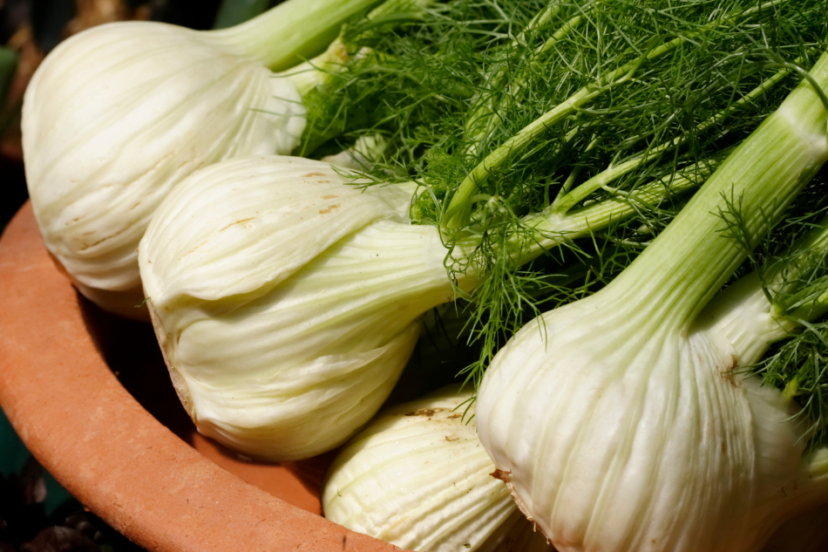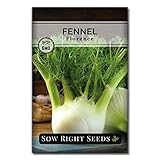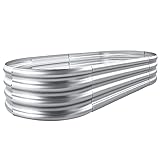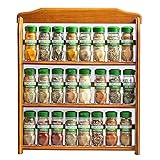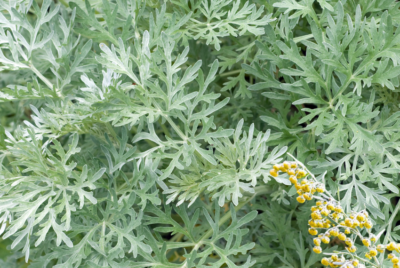Fennel Health Benefits
It’s time to investigate the world of fennel and uncover the surprising health benefits this flavorful herb has to offer. From aiding digestion to boosting immunity, fennel is a powerhouse of nutrients and medicinal properties. These properties can enhance your well-being in more ways than you might imagine. Let’s explore the wonders of fennel and how you can incorporate it into your diet there are few links to products you didn’t know that excited. Lets go to reap fennels health-boosting benefits.
Key Takeaways:
- Fennel is a versatile herb: Fennel can be used in a variety of dishes, from salads to soups, and even teas. By adding fennel you can add a unique flavor profile to your meals.
- Rich in nutrients: Fennel is packed with necessary nutrients like vitamin C, fiber, potassium, and antioxidants. These can contribute to overall health and well-being.
- Supports digestion: Fennel has long been used to aid digestion, reduce bloating, and alleviate stomach cramps. This makes it a great herb to incorporate into your diet for digestive health benefits.
- May have anti-inflammatory properties: Some studies suggest that fennel may possess anti-inflammatory properties. These could potentially help reduce inflammation in the body and support overall health.
- Easy to incorporate into your diet: Whether you chop up fennel bulb for salads, brew fennel tea, or sprinkle fennel seeds on dishes, incorporating fennel into your diet is simple and can offer a range of health benefits.
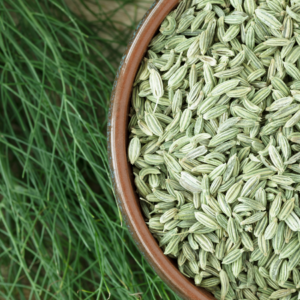
History and Cultivation of Fennel
Origins and Traditional Uses
The history of fennel dates back thousands of years, with its origins believed to trace back to the Mediterranean region. This flavorful herb has been a staple in many ancient cultures, including Egyptian, Greek, and Roman civilizations. Fennel was highly regarded for its medicinal properties and culinary uses, often used to aid digestion, freshen breath, and add a unique flavor to dishes. Try growinf some for yourself.
- Beautiful - Large premium packets of Florence Fennel (Foeniculum Vulgare). A delicious garden snack also Known as Finocho. Minimum of 400 mg per packet (about 150 seeds).
- Good Eats - Fennel seeds can be harvested and dried for fennel spice, which is popular in spice blends to season meat and fish.The bulb, stalks, and feathery leaves have a subtle anise or licorice flavor.
- Productive - Florence Fennel germinates in 14-28 days when soil temps are 65-70°F. Plant 1/4” deep and space 12” apart in an area with full sun. This variety will grow 2-3’ tall with a spread of 10-16”. This variety will mature in 100-120 days, plant in USDA Zones 3-11.
- Easy to grow - Instructions included on each packet. Plus, we are available to answer all your questions. If these seeds don’t germinate, we will happily make it right for you.
- Safe and Sustainable - Our operation is fully solar powered, and Sow Right Seeds has taken the Safe Seed Pledge to sell only fresh Non-GMO heirloom seeds for you and your family.
- The Best Value - Organo Republic Fennel Florence Seeds Pack contains 1.25 g or 360 of Non-GMO heirloom fennel seeds. Fennel (F. vulgare var. azoricum) is known for its sweet flavor and is the perfect addition to fresh vegetable salad or culinary creations.
- Innovative Fennel Seeds Package - Organo Republic craft seed envelope protects herbs seeds from sunlight and moisture. Allows secure storage for successful planting now or later. We prioritize sustainability to ensure environmental safety.
- High Germination Rate - Whether you have an indoor hydroponic garden or an outdoor herb patch, our fennel seeds are perfect for any setting. With a superior germination rate proven through various tests, plant fresh herbs all year round. Enjoy the satisfaction of fennel seeds in your own garden, knowing that our high-quality fennel florence seeds for planting herbs guarantee an abundant harvest and delicious meals for you and your family.
- Easy to grow - Our herbs seeds package comes with comprehensive gardener tips for various climates and soil conditions, making them perfect for beginner home gardeners. Scan the QR codes on the seed packet to access the online seeds growing guide for planting fennel seeds like a professional gardener.
- US Sourced Premium Fennel Seeds - We are sourcing our seeds only from the most trusted and sustainable domestic seed suppliers and farmers. We proudly test and package them in our Florida Boutique Family-Owned Facility to provide you with the best quality. Our fennel seeds for planting herbs undergo rigorous testing with a 90%+ germination rate. Sealed to last for up to 2 years, you can trust the freshness and viability of our herbs seeds.
- Sturdy and Stainless Steel Garden Set: Made of Stainless Steel, this stainless steel gardening tools is durable and rust-proof. Moreover, with stable material like this, these gardening tools are hardly deformed
- One for All Package: Grenebo garden tools set includes a total of 8 tools and 1 storage bag. Pruning Shears, Weedier, Transplanter, Cultivator, etc., nearly everything you need in daily garden maintenance
- Ergonomic Handle Design: In order to realize a more comfortable and effortless user experience, the gardening tools were non-slipped wooden handles, well-designed and suitable for different hand sizes. No matter kids or seniors, these gardening tools made things easy during digging, carrying, weeding, planting, and pruning
- Garden Tote Bag: The biggest concern of buying a big gardening tool set is storage, but for this consideration, Grenebo gardening tools for gardening come with a heavy-duty storage bag, is floral design with a vintage style, adds additional beauty to your garden. Moreover, there is a specialized hole on each tool handle for hanging them up in the off-season or after use
- Show your love with a premium Garden Tools Set: The tote bag durable and easy to carry, which is the choice for women, neighbors, and all enthusiastic gardening lovers
- 🌈 10pcs Premium Gardening Tools: Our gardening tools can meet most gardening needs. The garden tool set have saw, snips, trowels, weeder, rake and fork which are use for loosening soil, weeding, cutting trees and branches, digging and tranplanting.
- 🌈 Durable: The gardening tools makes with thick stainless steel, sharp, stronger and harder to bend or break.
- 🌈 Humanized Design: Ergonomically design gardening tools have soft handle, non-slip, comfortable, not easy to fatigue to use the tools with or without gloves.
- 🌈 Anti-Rust & Easy to Clean: The storage bags can be hand washed and machine washed. There is a hole in the handle of each tool for easy hanging and not easy to rust design. Just wash them with water and hang it up!
- 🌈 Portable Storage Bags: Thick textile fabric, fixing elastic loop and multi-pocket design, practical, simple and stylish. There is space left in the bag to hold your other tools, such as spray bottle, plant labels, seeds and ect.
Modern-Day Cultivation and Availability
On a modern scale, fennel continues to be cultivated primarily in the Mediterranean region, but it is also grown in many other parts of the world, including India, China, and the United States. This versatile herb is readily available in most grocery stores and is commonly used in a variety of dishes, from salads to soups to teas.
Cultivation: Fennel is a hardy perennial that can thrive in a variety of climates, making it a popular choice for home gardeners and commercial farmers alike. Its feathery leaves, crunchy bulb, and flavorful seeds make it a valuable addition to any herb garden. However, it’s important to note that fennel can be invasive in some regions, so it’s crucial to contain its growth to avoid it taking over your garden.
- LARGE PLANTING SPACE: 8.4 cubic feet of space can support your choice of flowers, succulents, vegetables, and more
- PROPER DRAINAGE: Six drainage holes help the roots aerate and allow excess water to escape, encouraging long-term growth while helping prevent rot or mineral build-up
- ALL-WOOD CONSTRUCTION: Naturally durable Chinese fir wood provides a durable, weather-friendly structure that will avoid warps and sagging over time
- ERGONOMIC HEIGHT: The 30-inch tall design removes the need for bending or kneeling, preserving your back and knees as you tend to your balcony, deck, or patio garden
- PROTECT YOUR PLANTS: An elevated bed discourages pets, rodents, and other animals from invading your garden space and ruining your hard work
- Each raised metal garden bed size: 4×2×1ft ,7.14Cu
- Upgraded quality and structure: raised garden beds outdoor are made of Q195 galvanized metal sheet, double-layer anti-corrosion galvanizing and oval structure design, which is more beautiful, can withstand greater pressure at the interface, is not easy to loose, and the interface will not Deformed and can be reused for many years.
- Easy to set up, this galvanized stock tank only takes about 5 minutes to easily assemble and continue planting plants.
- Open base: This planter raised garden bed metal galvanized is designed with an open base, which can effectively avoid water accumulation and decay, protect the roots of plants, and allow the roots to better absorb nutrients
- Double thickness: The average thickness of this galvanized planter galvanized sheet reaches 0.78mm, and the thickest part can reach 1.56mm, which is extremely stable. Compared with the ordinary rectangular elevated garden bed with a thickness of 0.3mm, it will be the right choice for you. buy it! ! !
- BEGIN YOUR GARDEN JOURNEY: This 8x4x1ft galvanized raised garden bed has all the needs in gardening! Thickened sheets and durable structure build a ideal environment for vegetables or plants. Also there are multiple sizes and colors you can choose to fit your gardens!
- OPPEN BASE DESIGN: which effectively protects plant roots by preventing excess water from accumulating. Due to the 12 inches deep, it's suitable for growing deep-rooted plants. There's plenty of room to grow larger crops of vegetables or plants. Also it can be moved in any places you like.
- EASY ASSEMBLE: With upgraded screws and heavy duty middle rods, just need few minutes to setup your new raised garden bed! Please wear the gloves we provided before installation.
- 4 CORNER CAPS: We provide 4 plastic cap at each corner, which can protect you from injuring, also better looking with these 4 plastic caps.
- 3-YEAR-WARRANTY: Foxlang has been develop raised garden bed at all times, inspiring people to find out the style that suits them. We provide 3-year-warranty to let you choose the raised garden bed for your garden without worries.
- Large Planting Space: Extra long planter box for more plants. 12 inches depth and 8 cu.ft. (240 Qt.) volume provide ample room for root
- Rust Resistant: Galvanized metal allows it to be exposed to all weathers. Avoid the danger of softening the wooden planter from humidity
- Better Drainage: 4 drainage holes protect your plants during spring showers. Feel relaxed to water your vegetables, herbs and flowers.
- Suitable Height: 32 inch leg height avoids bending while planting. Tall enough to keep out rabbits, gophers and other animal
- Long Lasting: It supports 400 lbs secured by thicker metal and 4 foot pads. Corrugated side walls provide more rigidity.
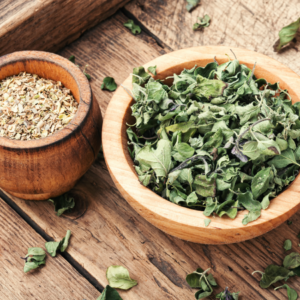
Nutritional Profile of Fennel
Assuming you’re looking to add a new dimension of flavor to your dishes, fennel is a fantastic herb to incorporate, not just for its taste but also for its impressive nutritional profile. Fennel is packed with imperative vitamins, minerals, and antioxidants that offer a range of health benefits.
- 𝗕𝗜𝗚𝗚𝗘𝗥 𝗧𝗛𝗔𝗡 𝟳 𝗧𝗥𝗔𝗬𝗦: With 6 stainless steel trays providing 6.5 ft² of drying space, this dehydrator is 27% larger than standard 7-tray models, allowing you to dry more food at once
- 𝗠𝗢𝗥𝗘 𝗣𝗢𝗪𝗘𝗥𝗙𝗨𝗟 & 𝗘𝗙𝗙𝗜𝗖𝗜𝗘𝗡𝗧: Equipped with a 600 W motor, rear-mounted drying fan, and upgraded airflow technology for faster, more even drying without manual intervention
- 𝗦𝗨𝗣𝗘𝗥 𝗤𝗨𝗜𝗘𝗧 𝗢𝗣𝗘𝗥𝗔𝗧𝗜𝗢𝗡: Features an advanced brushless motor with noise levels below 48 dB, letting you dehydrate your food quietly — even overnight
- 𝗙𝗨𝗟𝗟𝗬 𝗘𝗤𝗨𝗜𝗣𝗣𝗘𝗗: Comes with 6 dishwasher-safe trays, 1 mesh screen, 1 fruit roll sheet, 1 user manual, and a 50-recipe cookbook. Explore additional accessories by searching for 'COSORI Dehydrator Accessories', or 'C267-2MS', 'C267-2FR', 'C267-2ST'
- 𝗣𝗥𝗘𝗖𝗜𝗦𝗘 𝗖𝗢𝗡𝗧𝗥𝗢𝗟: Set the timer for up to 48 hours and choose your desired drying temperature between 95 °F–165 °F accurately down to the degree using the digital control panel
- ADJUSTABLE TEMPERATURE from 95ºF to 158ºF ensures that foods are dehydrated at their optimal temperature and vertical air flow distributes heat evenly and efficiently.
- HEALTHY SNACKS: Prepare 100% all-natural dehydrated foods and snacks with no added sugars, additives or preservatives. No more processed junk food, enjoy dry healthy fruit rolls, trail mix, granola, and much more!
- BEAUTIFUL & STYLISH stainless steel accent base.
- DURABLE EASY TO CLEAN stainless steel bottom drying trays (11”x 7.75”) with clear-view sides are interchangeable and easy to clean.
- EVEN HEAT DISTRIBUTION: fan forced air promotes even drying and continuous air circulation. Clear lid and drying trays allow you to monitor the drying process.
- ADJUSTABLE TEMPERATURE from 95ºF to 158ºF that foods are dehydrated at their optimal temperature and horizontal air flow distributes heat evenly and efficiently.
- HEALTHY SNACKS: Prepare 100% all-natural dehydrated foods and snacks with no added sugars, additives or preservatives. No more processed junk food, dry healthy fruit rolls, trail mix, granola, etc.
- FUN AND CRAFTS: Perfect for hobbyists to dry flowers, potpourri or dough crafts and pet lovers to prepare healthy and delicious 100% natural treats for their furry companions.
- EVEN HEAT DISTRIBUTION: using a base mounted fan promotes even drying and air circulation. Large viewing window allows you to monitor the drying process.
- SAFETY TESTED: ETL Listed at 350W of power / 120V is perfect for home use. Do not use outdoors. Dishwasher safe removable parts.
Vitamins and Minerals
To start, fennel is a good source of vitamin C, an imperative nutrient known for its immune-boosting properties. Additionally, it contains potassium, which is crucial for heart health and regulating blood pressure. Fennel also provides calcium, important for bone health, and iron, imperative for oxygen transport in the body.
- Nature's Way Fennel Seed provides traditional digestive support.*
- With 480 mg of fennel seed per serving
- Adults take 1 capsule three times daily
- Gluten free and vegan. No wheat, corn, soy, dairy, gelatin, or artificial colors, flavors, or preservatives. Non-GMO Project Verified
- At Nature's Way, we believe nature is the ultimate problem solver. For over 50 years, we have looked to the natural world for inspiration. Our quality vitamins and supplements are formulated to help you find your way to wellness
- FENNEL SEED: Mediterranean traditional herb with bright yellow flowers and nutrient rich seeds
- TRADITIONAL HERB: Delivers 480 mg of Fennel Seed in each quick-release capsule
- ROOTED IN WELLNESS: Carlyle provides premium, honest supplements in your pursuit to healthy living
- CARLYLE MANUFACTURERS: Laboratory Tested, Trusted Ingredients, Superior Quality, 100% Guaranteed!
- NATURALLY FREE OF: Soy, Artificial Flavor, Artificial Sweetener, Preservatives & Non-GMO
- Earthborn Elements Fennel Seed Capsules
- Fennel is flowering herb native to Sothern Europe and often used in cuisine and traditional supplements from the area
- Pure & Undiluted: Never any additives or fillers
- 200 Day Supply: About 7 months of peak health support
- Encapsulated in USA
Antioxidant Properties
On top of its nutritional value, fennel boasts impressive antioxidant properties that can help protect the body from oxidative stress and inflammation. Antioxidants like flavonoids and phenolic compounds found in fennel can help combat free radicals, reducing the risk of chronic diseases such as cancer and heart disease.
Nutritional research has shown that fennel contains high levels of quercetin, a powerful antioxidant known for its anti-inflammatory effects. By incorporating fennel into your diet, you can benefit from these potent antioxidants and support your overall health and well-being.
- Expertly extracted for support of the digestive system.
- Prepared from the certified organic mature seed of Foeniculum vulgare plants.
- Rapidly absorbed liquid extract.
- Gluten-free and non-GMO.
- Herb potency assured through High Performance Thin Layer Chromatography (HPTLC) analysis.
- Fennel (Foeniculum vulgare) fruit liquid extract or tincture concentrated 1:10. 100% natural, alcohol and sugar free. MADE IN ITALY.
- A NATURAL AID: Fennel liquid herbal supplement in drops. 40 drops (2 ml) contain 2.3 g of Fennel extract (1:10). Glyceric macerate or pure fluid extract of Fennel (Foeniculum vulgare) fruit in drops.
- NATURALMA - A Natural Way of Life: We respect and love Nature, that's why all our supplements are Vegan and contain no artificial ingredients. We believe in the importance of guaranteeing quality and safety, so we carefully select the raw materials and manufacture the products in Italy.
- AT YOUR SIDE: Being attentive to your needs is a cornerstone of our philosophy. For this reason, in addition to developing supplements designed for your specific needs, we work with unique formulas to achieve the perfect synergy of ingredients and dosages. We are always available to advise and support you in your objectives, provide you with the certifications of any product, and answer all your questions. Contact us!
- USDA Organic Certification: Our products have met strict standards for the growing, processing and handling set by the National Organic Program
- 3rd Party Lab Tested: No Foreign Substances, No Fillers, Herb ID Confirmed for Your Safety, Micro test
- 100% Natural Products: No Artificial Colors or Flavors, No Sugar or Sweeteners Added, Easily Absorbed by the Body
- Tested and Verified for Purity: Steam Distilled, Pristine Quality, Gluten-Free, No Preservatives, Soy-Free, Dairy-Free, Egg-Free, Cruelty-Free
- High Potency: Patent-Pending Unparalleled Extraction Method, Highest Concentration of Bioactive Components 100% Made in the USA
Fiber and Digestive Benefits
Vitamins A and C, as well as potassium and dietary fiber, lend fennel its significant digestive benefits. Fiber not only aids in digestion but also helps maintain a healthy weight and can lower the risk of developing chronic conditions such as heart disease and diabetes. Fennel’s unique combination of vitamins and minerals supports a healthy gut and promotes overall digestive wellness.
This flavorful herb also contains anethole, a compound known for its anti-inflammatory properties and ability to relax the digestive tract. Regular consumption of fennel can help alleviate digestive issues such as bloating, gas, and indigestion, making it a valuable addition to your diet for optimal digestive health.
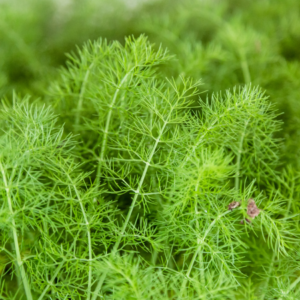
Surprising Health Benefits of Fennel
After exploring the flavorful world of fennel, let’s investigate into its surprising health benefits that have been cherished for centuries. This humble herb packs a powerful punch when it comes to promoting overall health and well-being.
- Promotes healthy digestion.
- Non-GMO verified. All Ingredients Certified Organic. Kosher. Caffeine Free.
- Consistently high quality herbs from ethical trading partnerships.
- Taste: Sweet and herbal with a distinct taste of anise
- 1 box containing 16 sealed tea bags
Digestive Health and IBS Relief
Relief Fennel has long been praised for its ability to support digestive health. It contains anethole, a compound that can help relax the digestive tract, reducing bloating and gas. This makes fennel a popular natural remedy for those suffering from irritable bowel syndrome (IBS) and other digestive issues.
Menstrual Relief and Hormone Regulation
For women, fennel offers natural relief during menstruation by helping to regulate hormonal imbalances. It has been traditionally used to ease menstrual cramps and reduce symptoms of PMS. Fennel’s phytoestrogens mimic the hormone estrogen, which can help balance fluctuating hormone levels during the menstrual cycle.
- Pure Original Ingredients Fennel Seed Capsules are filled with a single ingredient, providing a pure undiluted supplement
- Fennel is flowering herb native to Southern Europe and often used in cuisine and traditional supplements from the area
- Always Pure: No additives, stearates, or rice fillers
- 365 Day Supply: 1 year peak health support
- Packaged in Utah, USA
- New Design: The electric portable cordless heating pad has 4 heat levels and 4 massage modes, adjustable elastic belt with connect buckle and Type-C charging.
- Stable Buckle: The heating belt was designed with Seizing-up buckle. It let device stabler, no fall off any more. Moreover, it is more easily when using the device.
- Large Heating Area: The electric heating belt has enlarged the size to 8.3x3.9x1.0 inches, so that it has more heating area which can suitable for more part of your body such as belly, back, neck.
- Safety: The portable heating pad is designed to automatically shut down. If you fall asleep during use, our product will automatically turn off within 30 minutes when it detects that you have not made any movement, which can ensure your safety. If you want to use it again, just turn it on again.
- Best Gift for you: The menstrual heating pad is a good gift for friends and loved ones for any holiday or special event, such as Valentine's Day, Mother's Day, birthday, holiday, anniversary.(Note: The heating pad has more effective heating function. For the first use, we suggest starting from lowest temperature level, then adjust the temperature level according to your feelings. )
Anti-Inflammatory Effects
One of the key health benefits of fennel is its potent anti-inflammatory properties. Consuming fennel regularly may help reduce inflammation in the body, which is linked to various chronic conditions such as heart disease, arthritis, and cancer. This makes fennel a valuable addition to an anti-inflammatory diet.
This is from the product description online click on the link below and read it direct. It was such a good description I thought you should see it.
“While fennel seed is utilized in the culinary world for is anise-like flavor, it’s considered a popular multipurpose remedy in the natural health community. A natural source of vitamins, minerals and dietary fiber, fennel seed can be used to aid a variety of digestive ailments.* Fennel seed has several medicinal qualities that make it a suitable remedy to combat many conditions. Most noteworthy is fennel seed’s power to combat digestive discomforts. Fennel seed contains anethole, a compound that is known to reduce inflamation in the body.
The volatile oils in fennel seed increase the secretion of digestive enzymes in the stomach, which promotes better digestion and nutrient absorption. As a mild laxative, fennel seed encourages the muscular contractions that propel contents through the digestive tract. For these reasons, fennel seed may offer relief from occasional indigestion and constipation.* Fennel seed also has antioxidants that help to defend the body from free radical damage.”
- An herbal digestive aid*
- Promotes nutrient absorption*
- May have antioxidant properties*
- Fennel Seed Capsules
Immune System Support
System Fennel is rich in antioxidants, vitamins, and minerals that can help boost the immune system and protect the body against infections and diseases. Its antimicrobial properties also make it effective in fighting off bacteria and viruses, keeping your immune system strong and resilient.
Understanding the many health benefits of fennel can inspire you to incorporate this versatile herb into your daily diet. Whether you’re looking to improve your digestive health, regulate hormones, reduce inflammation, or boost your immune system, fennel offers a natural and flavorful solution to enhance your overall well-being.
- 【Far Infrared Heating Therapy】-Provide far infrared heating, Heat penetrates much deeper.
- 【Extra Large】- Lengthened to 55’’ waist circumference, Extra large heating range for Lower Back
- 【Smart Controller / Temperature】- 103℉-159℉, 4 hours auto shut off.
- 【Natural Jade and Tourmaline】-Keep Heating stay for a much longer time period, emit negative ions and far infrared heat therapy.
- 【3 Years Warranty】- Non-manual damage, heating pad, and accessories, we provide 3 years of replacement.

Fennel in Traditional Medicine
Unlike modern medicine, traditional medicine systems like Ayurveda and Chinese medicine have long revered fennel for its various health benefits. In Ayurveda, fennel is believed to possess cooling properties that can help balance the body’s doshas and improve digestion. It is often used to alleviate digestive issues such as bloating, gas, and indigestion. In Chinese medicine, fennel is valued for its ability to promote healthy Qi flow and support the spleen and stomach meridians.
- Expertly extracted for support of the digestive system.
- Prepared from the certified organic mature seed of Foeniculum vulgare plants.
- Rapidly absorbed liquid extract.
- Gluten-free and non-GMO.
- Herb potency assured through High Performance Thin Layer Chromatography (HPTLC) analysis.
Herbal Remedies and Teas
Traditional herbalists and healers have utilized fennel in various remedies and teas for centuries. Fennel tea, made by steeping fennel seeds in hot water, is a popular remedy for digestive discomfort and menstrual pain. The tea is known for its soothing properties and is often used to promote relaxation and relieve stress.
To unlock the benefits of fennel in herbal remedies and teas, simply infuse crushed fennel seeds in hot water and allow it to steep for 5-10 minutes. You can enjoy this aromatic and flavorful tea after meals to aid digestion or whenever you need a calming cup to relax and unwind.
- DELICIOUS EXPERIENCE - Formerly known as For Her Tea, Flow is a floral, creamy blend that was designed to restore balance in the body, mind, and soul. With botanicals and herbs such as organic Shatavari, rose hips tea leaves and hibiscus tea leaves, this blend has a smooth and round finish with each and every sip.
- NATURAL INGREDIENTS - Each of our tea blends are as authentic as tea can get. Art of Tea uses whole ingredients in these tea blends, not just the tea fannings. No sugar or carbs added, Kosher, Gluten Free, Vegan Friendly, and fits into a wide variety of special diets! Looking to start making your own tea blends using these as a base? Check out Art of Tea's single-use biodegradable drawstring tea bags, perfect for custom tea brewing!
- CREATE A PERFECT BREW - For the best flavor out of our Flow Tea blend, brew one 8 oz cup of tea in water heated to 195 degrees Fahrenheit and steep 1 teaspoon for 5-7 minutes. If you’re looking to make a larger batch, add one more teaspoon of leaves per 8 oz of water.
- CAFFEINE CONTENT - Our Flow Tea is caffeine free, making it the perfect tea to sip before bedtime.
- ADDITIVE FREE - All of Art of Tea’s blends are 100% organic and made of natural ingredients with no additives. Our Flow Tea includes Organic Shatavari, Organic Fennel, Roses, Green Rooibos, Organic Lavender, Chrysanthemum, Organic Hibiscus, Natural Flavors
Topical Applications and Skincare
Any skincare enthusiast will appreciate the benefits of fennel in topical applications. Fennel’s antimicrobial and anti-inflammatory properties make it a valuable ingredient in skincare products. The antioxidant-rich fennel extract can help protect the skin from environmental damage and promote a healthy, radiant complexion.
Medicine research has shown that fennel extract may help reduce skin irritation, redness, and blemishes, making it a great addition to your skincare routine. Look for skincare products that contain fennel extract or imperative oil to experience the positive effects on your skin.
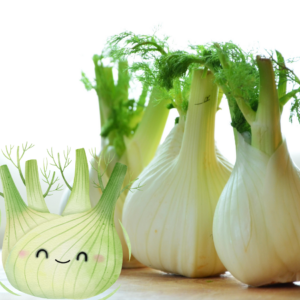
Culinary Delights: Cooking with Fennel
Fresh vs. Dried Fennel: When to Use Each
For cooking with fennel, whether fresh or dried, it’s important to consider the flavor profile you aim to achieve. Fresh fennel has a mild anise-like taste with a refreshing crunch, perfect for salads or as a topping for pizzas. On the other hand, dried fennel intensifies the herb’s flavor, making it ideal for seasoning roasted vegetables, meats, or homemade spice blends.
- COMPACT – Our spice rack has a narrow profile even though it holds 20 jars. It only measures 13.5"H x 7.5"W x 7.5"L. It’s a huge space saver and a great way to organize your spices inside your cabinet, shelf, pantry, or counter.
- 360◦ ROTATING – The rotating base allows for quick and easy access to all your seasonings.
- STAY ORGANIZED -- Comes with 340 preprinted labels, 10 number labels, 46 blank labels and a funnel. Simply mark you jars with the label of your choice. The funnel makes it easier to fill up the jars.
- DURABLE and STABLE -- Our spice rack holder was built to last. It’s made of stainless steel, weighing just above 6 LBS. This ensures it doesn’t wobble or deteriorate with everyday use. To clean, simply wipe with a cloth or paper towel.
- LIFETIME WARRANTY -- New England Stories was founded in 1987 in Boston and is now located in Taunton. We offer a lifetime warranty on all our products if purchased from us.
- Organic assortment featuring 24 best-selling herbs, spices and blends
- Superior savings vs. buying individual spices
- Three-tier wall mounting wood rack keeps everything organized
- Makes a great wedding, bridal shower, housewarming, or holiday gift
- From America’s #1 spice brand
- Wide selection of spices: This handy, well stocked spice rack comes with 16 sealed glass spice jars filled with frequently used spices
- Selection: Basil, celery seed, cinnamon, coriander, ground cumin, dill weed, whole fenugreek, ginger, ground fennel, ground mustard, oregano, paprika, himalayan pink salt, rubbed mint, thyme, and tumeric
- Easy to read labels : Chrome plated plastic spice caps display the namesof the spices in clear, black lettering.
- Convenient access: Spice rack rotates, bringing all the glass spice jarsinto view, which makes finding the spice of choice as easy as possible.
- Space efficient : Fits neatly on any kitchen counter or stores easily in acabinet; orbit spice rack set makes a great gift idea for newhomeowners or newlyweds
- SMART & STYLISH DESIGN: rotates for easy access to spices on countertops or in cabinets; stainless steel construction adds a modern look to your kitchen
- SPICES INCLUDES: bay leaves, basil, celery salt, chives, coriander, crushed mint, fennel seed, herbes de provence, Italian seasoning, marjoram, oregano, parsley, pizza seasoning, rosemary, sea salt, and seasoning salt (spices may vary)
- REMOVABLE SIFTER DISCS: allow you to easily sprinkle, scoop, and pour spices, or refill jars
- EASY TO SEE: glass jars and clearly labeled caps help you quickly find spices
- FREE REFILLS: simply register rack within 90 days of purchase to order refills for up to 5 years (see packaging for details - applicable to residents of the US)
Pairing Fennel with Other Herbs and Spices
Dried fennel pairs well with rosemary, thyme, and oregano to create a robust seasoning blend for roasted chicken or grilled fish. The aromatic combination of fennel with these herbs adds depth and complexity to the dish, elevating the overall flavor profile to new heights.
- SPICES WITHIN REACH: Drawers glide out and pull down to resting position for easy access to all your spices. The patented design brings spices from the back of the cabinet out to you at eye-level.
- FLEXIBLE STORAGE: SpiceStack includes three adjustable dividers so you can fit all your spice bottles in one neat area within the cabinet or pantry. Round, square, small and tall bottles? Your spices will fit (no messy transfers required).
- FAST FINDING: Each SpiceStack includes 104 (52 printed and 52 blank) removable drawer labels for custom organization and an even faster find while cooking. Organize alphabetically or by usage/type.
- QUICK SET-UP: Just take SpiceStack out of the box and start loading spices. Your spice bottles will be organized in mere minutes and you’ll never look back! No tools, mounting or installation required.
- MADE TO FIT: SpiceStack Spice Bottle Organizer measures 11.0” D x 10.5” W x 8.3” H; made from high-quality, durable plastic with non-slip feet.
Fennel also complements coriander seeds and cumin beautifully, enhancing the warm and earthy notes in stews and soups. The addition of fennel brings a subtle sweetness and a hint of licorice flavor, creating a harmonious balance of tastes in your culinary creations.
Click the link to see the 5 available colors of wood.
- 60 Jar Spice Rack Organizer - Simplify and elevate your herbs, spices and seasonings organization with an AllSpice Wooden Spice Rack. Complete with 60 4oz / 1/2 c refillable empty glass jars and three lid variations, including shaker and scraper tops
- Solid Bamboo Wood - Crafted with a durable bamboo frame and painted with a sleek matte black finish, the All Spice organizer infuses style to any kitchen or pantry décor while eliminating cluttered countertops, cabinets and seasoning containers
- Easy-To-Read Labels - Featuring 525 pre-printed, waterproof spice jar labels covering common and exotic spices, 35 blank labels and a paint pen for customization, the spice jars with label and organizer rack make it fun and easy to cook creatively
- Countertop, Cabinet or Wall Mount - AllSpice extra large spice rack organizer can be installed in a vertical or horizontal position on the wall or directly on the counter top. Set includes mounting hardware and instructions. NO spices included
- Dimensions - 24.75" x 15.63" x 4.75" - Requires a minimum 16-inch clearance from countertop to cupboards. When standing upright, foam rubber feet provide protection against scratches and water damage, and the slim profile fits neatly against the wall
Simple Recipes for Fennel-Based Dishes
Dishes like Roasted Fennel with Parmesan or Fennel, Orange, and Avocado Salad showcase the versatility of this herb in both savory and refreshing preparations. Roasting fennel enhances its natural sweetness, while combining it with the tanginess of citrus fruits like oranges creates a bright and lively dish that is sure to delight your taste buds.
Cooking with fennel allows you to explore the myriad of flavors and textures this herb can offer, adding a delicious twist to your everyday meals. Whether you choose to use fresh or dried fennel, experimenting with different herb and spice pairings can unlock a world of culinary possibilities that will surely elevate your dishes to a whole new level.
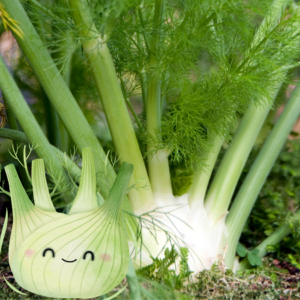
Safety Precautions and Interactions
Now let’s research into some important safety precautions and interactions to keep in mind when incorporating fennel into your diet.
Allergic Reactions and Contraindications
Any herb, no matter how beneficial, can potentially trigger allergic reactions in some individuals. If you have a known allergy to carrots, celery, or mugwort, you may also be allergic to fennel, as they belong to the same botanical family. Symptoms of an allergic reaction may include itching, swelling, hives, difficulty breathing, or even anaphylaxis. It’s crucial to seek immediate medical attention if you experience any of these symptoms after consuming fennel.
- Trusted by medical professionals and everyday people, LifeVac has saved thousands of lives and is safe and effective to use in choking emergencies.
- Easy to Operate: Quickly release danger with only one button trigger in emergency while supporting self-rescue
- Preloading: Make the rescue quicker and easier, saving valuable time in emergency situations
- Consistent suction about 33KPa: Provide instant pressure to relieve choking, and ensure optimal results every time
- Safety: Greatly reduce the damage caused by mask pressure to face and neck, eliminating the risk of secondary damage caused by the blockage going deeper
- 3 Different Size Masks: Cover almost all people except infants. Make sure the mask fits the face and forms a vacuum environment
Interactions with Medications and Supplements
Safety precautions should be taken when consuming fennel if you are taking certain medications or supplements. Fennel may interact with medications such as blood-thinners, estrogen pills, and certain antipsychotic drugs. If you are on any medications, consult with your healthcare provider before adding fennel to your routine to avoid any potential adverse effects.
Medications such as antacids may also interact with fennel, potentially reducing their effectiveness. It’s advisable to space out the consumption of fennel and these medications to prevent any unwanted interactions that could impact your health.
- Comprehensive Emergency Kit: Includes adhesive fabric and plastic bandages, antibiotic ointments, BZK antiseptic towelettes, burn cream packets, gauze roll and pads, wound closures, cold pack, and other multi-use first aid items
- Convenient Packaging: An ideal workplace and home first aid kit, this basic first aid kit comes in a soft-sided zippered case, complete with clear plastic pockets designed to keep first aid supplies neatly organized and easy to locate
- Easy Access: This convenient and versatile work, home, and car emergency kit features 2 separate layers with individual compartments that make accessing emergency supplies quick and easy
- Compact Size: Small enough to fit nicely into a backpack, vehicle compartment, or desk drawer, this travel-size first aid kit helps you stay prepared for potential emergencies when at home, in the office, or while on the go
- Personal and Professional First Aid Solutions: First Aid Only offers a full line of first aid kits, cabinets, and stations, Emergency Response Care, individual first aid products, Spill Clean Up kits, CPR care and more
- Included Components: Heartstart Onsite Aed Defibrillator, Pre-Installed Battery, Pre-Installed Adult
Pregnancy and Breastfeeding Considerations
With its potential to affect hormone levels, it is important to exercise caution when consuming fennel during pregnancy and lactation. Fennel is known to stimulate uterine contractions, which could pose risks during pregnancy. Additionally, the effects of fennel on breast milk production are not well-studied, so it’s best to err on the side of caution and avoid large amounts of fennel while pregnant or breastfeeding.
Interactions with hormone-regulating medications or supplements may also occur when consuming fennel. Therefore, it’s crucial to consult with a healthcare provider before incorporating fennel into your routine if you are pregnant or breastfeeding.
- ✅ INCREASE YOUR BREAST MILK SUPPLY NATURALLY: Clinically proven lactation supplement for Milk Supply Increase. Faster let downs (milk release). Feed and nourish your baby with confidence! Breastfeeding should be something you look forward to, not something you're worried about. Trust yourself and trust your body. Experience this magical time without the added stress!
- ✅ FAST ACTING FOR EASY BREASTFEEDING: Milk Aplenty is a proprietary herbal supplement formulated to increase breast milk supply. Significantly more effective than lactation cookies and simple lactation teas. Only the best for you and your baby. Harness the power of nature for an abundant milk supply and breastfeed with confidence!
- ✅ CERTIFIED ORGANIC INGREDIENTS: Fenugreek free, Non GMO. Synergistic formula with 4 potent herbal medicines: Shatavari, Moringa/Malunggay, Milk Thistle & Vervain. These gentle yet powerful, evidence based botanicals will increase breastmilk production. Feel calm and relaxed so that you can move past the worry and fully enjoy this special time with your little one.
- ✅ TRUSTED AND PROVEN: Recommended by doctors, healthcare professionals, lactation experts, and trusted by moms everywhere. Scientifically formulated by Lactation Experts and Naturopathic Doctors for maximum potency, absorption, and fast effects.
- ✅ BLISSFUL MAMA, HAPPY BABY: Motherhood can transform even the happiest zen mama into a stressed out mess. Any mother can agree that although motherhood is incredible, it also comes along with a sea of overwhelming emotions! Ditch the worry and "mom guilt"... YOU’VE GOT THIS, MAMA!
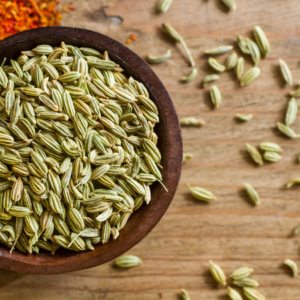
- Fenugreek & Fennel Salve (2 oz, ZIN: 524336)
- No fillers.
- Manufacturer: Bianca Rosa
- Size: 2 oz
- Luxurious Cream Base in a convenient salve jar.
- Fennel Seed - Salve Ointment (2 oz, ZIN: 428099)
- No fillers.
- Manufacturer: Bianca Rosa
- Size: 2 oz
- Luxurious Cream Base in a convenient salve jar.
- Fennel 4:1 Salve (2 oz, ZIN: 520081)
- No fillers.
- Manufacturer: Bianca Rosa
- Size: 2 oz
- Luxurious Cream Base in a convenient salve jar.
Summing up
The health benefits of fennel are truly impressive, from its digestive support to its antioxidant properties. This flavorful herb is a versatile ingredient that can be easily incorporated into a variety of dishes. By doing this you can enhance both the flavor and the nutritional value of your meals. Whether you’re looking to improve your digestion, boost your immunity, or simply add a new dimension to your cooking, fennel is a must-have herb in your kitchen.
The next time you’re at the grocery store, be sure to pick up some fennel and experiment with it in your recipes. Your taste buds and your body will thank you for unlocking the surprising health benefits of this aromatic herb!
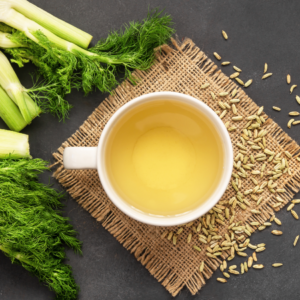
- 100% LEATHER TOOL BELT: A tool belt for women & men made with full-grain leather for all hand tools. This stylish pouch gives you an adjustable tool apron that will age gracefully. The tool organizer is perfect for gardeners, florists, artists, painters, farmers or as a work tool belt. The leather utility belt bag is ideal for gardening tools such as garden scissors, pruners & pliers, homesteading tools, tree grafting tools, woodworking tools, gardening supplies & all handheld tools.
- HANDMADE & STYLISH LEATHER TOOL POUCH: this garden tool belt is designed with passion to bring a tool holster with a fashionable flair. This handmade work apron suits women & men. It fits all body shapes and is designed for heavy usage, making it the perfect utility belt for those who value unique practicality. Plenty of pockets for all hand tools, farming tools, florist supplies, gardening supplies or gardening accessories. An ideal garden gadgets that will be loved by mom, grandma, or wife.
- COOL GARDENING GIFTS: Ideal for mom, grandma, dad, friend, wife, sisters, or any gardening aficionado, florist, farmer, or carpenter, this tool belt makes a unique gift. Whether for Mother's Day, Valentine's Day, or Christmas, our utility belt, presented in an elegant Gaucha Designs gift box, is perfect. A great choice for those who love gardening tools or gadgets. Our tool pouch is an elegant gift for her or him, and our genuine leather brings the touch of sophistication for any occasion.
- ADJUSTABLE TOOL BELT: Unmatched comfort throughout your workday with the ergonomically crafted design. Equipped with three highly functional pockets, a detachable leather pouch, & a holder for a rake or hammer, this tool apron is built to enhance your efficiency. The exceptional stitching of this utility belt guarantees its resilience for the most demanding tasks. Ideal for garden tool set & florist supplies. Best garden belt, leather pruner holster, hori-hori knife belt, work belt for women.
- GARDENING SUPPLIES & TOOL ORGANIZER: Our tool pouch is a perfect holder for gardening tool set, bonsai tools, woodworking tools & all garden accessories safe. With anti-rust & high-quality hardware to last, it is ideal for all hand tools. A toolbelt for all gardening supplies ,pruning scissors, pruning shears, hand spades, scoopers, garden snippers, japanese tools, tree grafting tools kit, and all handy tools. Our tool belt offers protection from sharp tools for optimum comfort whilst in use.
FAQ
Q: What are the health benefits of fennel?
A: Fennel is packed with antioxidants and fiber, which can help improve digestion, reduce inflammation, and boost overall health.
Q: How can fennel be incorporated into a daily diet?
A: Fennel can be enjoyed raw in salads, roasted with other vegetables. It can also be brewed into a soothing tea for a delicious and nutritious addition to your meals.
Q: Can fennel help with digestion?
A: Yes, fennel is known for its digestive properties and can help alleviate bloating, gas, and indigestion. This is due to its carminative effects. “Carminative” refers to a substance that helps to expel gas from the intestines and stomach. This way it is relieving flatulence and associated discomfort. These substances are often used in herbal medicine and traditional remedies to ease digestive issues and promote comfort. Common carminative herbs include fennel, peppermint, ginger, and chamomile.
Q: Does fennel have any medicinal properties?
A: Fennel has been used in traditional medicine for its anti-inflammatory, antimicrobial, and diuretic properties, making it a versatile herb for various health conditions.
Q: Are there any potential side effects of consuming fennel?
A: While fennel is generally safe for most people, some may experience allergic reactions or sensitivities. It’s always best to consult with a healthcare provider before adding fennel to your diet, especially if you are pregnant, nursing, or taking medications.
Lifevac Kit – Every Home Should Have One.
Buy one for you home and one to keep in the car.
- Trusted by medical professionals and everyday people, LifeVac has saved thousands of lives and is safe and effective to use in choking emergencies.
- LifeVac will never push the obstruction deeper into the victim’s airway as it features a one-way valve which ensures that when the device is used, it will not force the obstruction deeper into the airway of the victim.
- Easy to Use: LifeVac was designed to be simple to operate: It’s as easy as Place, Push, Pull. Our life-saving device can be self-administered in the event one experiences a choking emergency when alone.
- Never Expires: LifeVac will not have to be replaced unless used to save a life. Masks should be checked periodically and replaced every two to three years.
- One kit provides protection for your entire family, including both children and adults and is HSA / FSA approved.
Automatic Choking Rescue Device
- Easy to Operate: Quickly release danger with only one button trigger in emergency while supporting self-rescue
- Preloading: Make the rescue quicker and easier, saving valuable time in emergency situations
- Consistent suction about 33KPa: Provide instant pressure to relieve choking, and ensure optimal results every time
- Safety: Greatly reduce the damage caused by mask pressure to face and neck, eliminating the risk of secondary damage caused by the blockage going deeper
- 3 Different Size Masks: Cover almost all people except infants. Make sure the mask fits the face and forms a vacuum environment
Here are some more Digestive Aids andAnti-Inflammatory Herbs
The Hidden Health Benefits of Tarragon.
Coriander – Your Digestive Aid And Anti-inflammatory Superfood
Calming Properties Of Chamomile For Digestive Health
9 Surprising Fennel Benefits – Metabolism Booster
